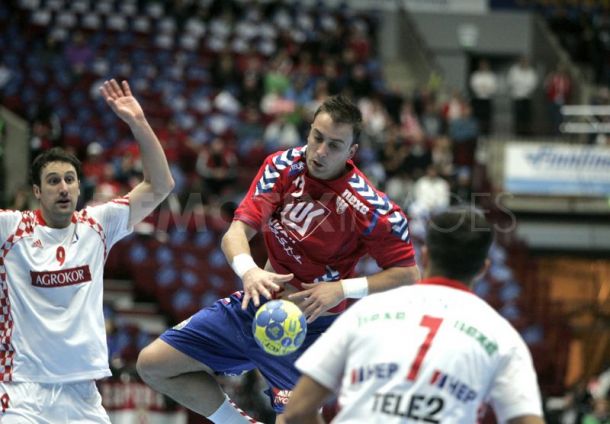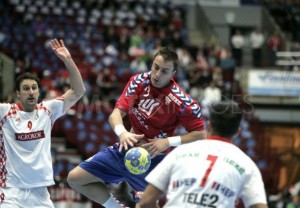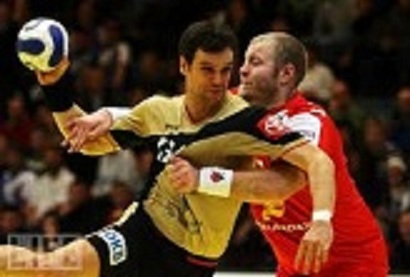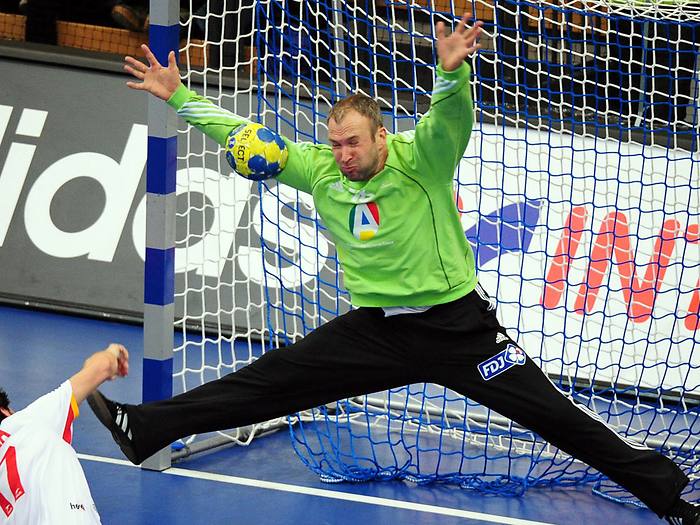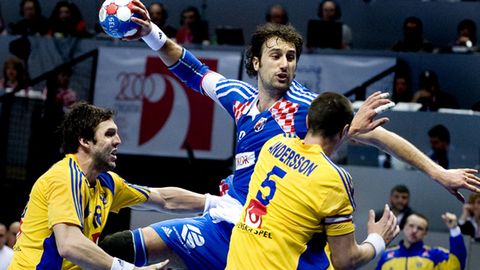After the independence, Croatia and (to a lesser extent) Slovenia immediately became important participants in the Men’s World Championships. Later on, FYR Macedonia has twice participated in a respectable way, and it is beginning to look as if Montenegro might soon be able to join in. Bosnia can now point to a nice success at the club level, by having a team qualify for the last 16 in the EHF Champions League. Meanwhile, the Serbs (albeit as Yugoslavia) had great success in 1999 and 2001, and then had good showings again in 2005 and 2009.
But as the world of handball has come to recognize, the super power has been Croatia, with Olympic gold twice and also one gold and three silver medals in the World Championships between 1995 and 2009. Clearly the success has largely depended on the star power in the form of players such as Balic, Dzomba, Goluza, Lackovic, Metlicic, Sola and Vori, just to mention a few. It seemed in 2009, even though it was a disappointment to all Croatians that the expected gold turned into silver, that a new generation was also beginning to be ready to step in, more or less guaranteeing top positions also for many years to come.
In this year’s Championship, however, one had reason to begin to doubt what was happening to the idea of a new generation. Far too much depended on the Balic-Vori axis, and especially the absence of Metlicic seemed to be a severe handicap. Lackovic and Alilovic did not reach their level of recent years, and many observers questioned the inclusion of Zrnic on the All-Star team. Was it because Croatia simply had to have someone on the team and because Balic/Vori did not deserve it, or was it because Zrnic had such success with his 7-meter throws? But the biggest letdown was clearly the performance of Balic. He often looked tired and frustrated, seemingly unable to shine in the absence of a good supporting cast. He even demonstratively left the game and sat sulking on the bench in some critical moments.
Serbia played in the same group as Croatia both in the preliminary round and in the main round. Their chances seemed to have been downplayed by the international media. The prevailing expert opinion was that they did not have enough top players on the team, with only Ilic, Vujin and possibly someone else being worthy of special mention. But the Serbs really went about business with tremendous spirit and team cohesiveness. In many games it was really refreshing to watch them and their positive attitude. It was not just the special battle in the game against Croatia that created such a spark.
While the Serbian team in the end lost a bit of their energy or edge, they managed to convince many of the experts that here we have a team to be reckoned with over the next few years. They displayed strong technical skills and their coaching staff brought out good tactical elements in the tradition of the best of the Serb teams of the past. The scoring strength is clearly there, and the goalkeeping did not turn out to be the weak spot that some had anticipated. All in all, it is obvious that there is an adequate pool of players to draw from, not just to keep the rivalry with Croatia going, but perhaps enough to put Serbia on a more positive trajectory at a point in time when the Croatians need to show that they have the capacity to manage a generation change successfully.
